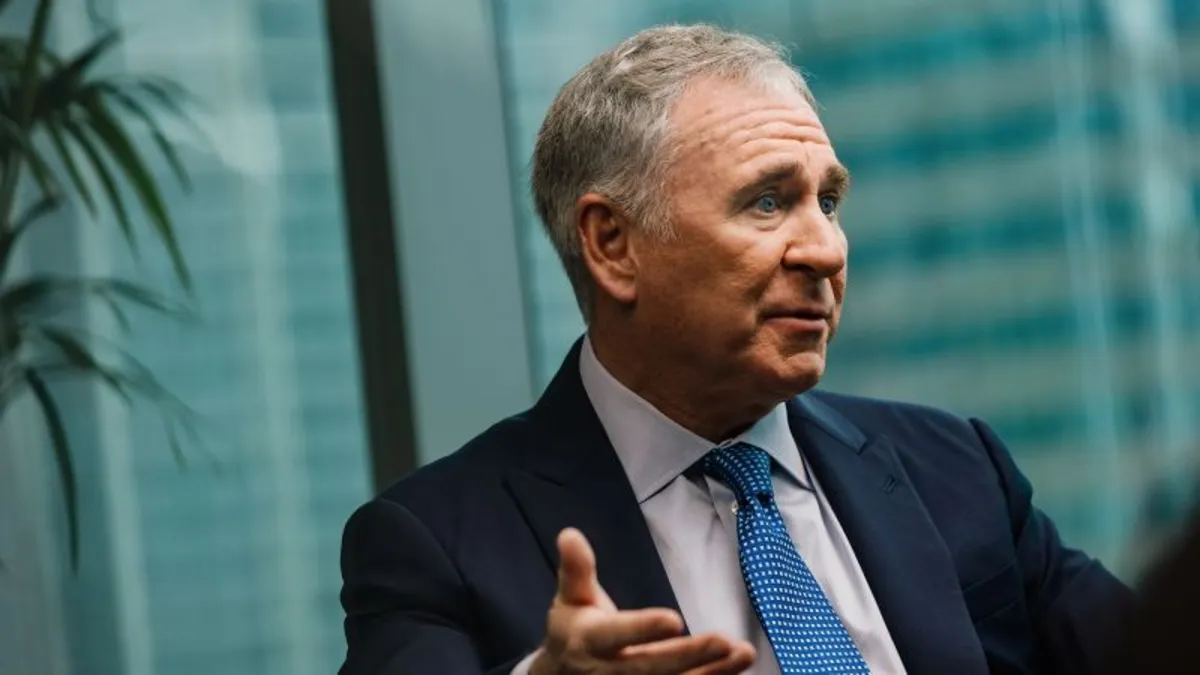
In a bold move, hedge fund billionaire Ken Griffin has chosen to speak out against President Donald Trump’s ongoing criticisms of the Federal Reserve. In a recent op-ed published in The Wall Street Journal, titled “Trump’s Risky Game with the Fed,” Griffin highlights the potential repercussions of undermining the Fed’s independence. He argues that Trump’s approach could lead to “stoking both higher inflation and higher long-term rates.”
Griffin, the CEO of Citadel, co-authored this piece with Anil Kashyap, a professor at the Chicago Booth Business School and consultant to the Chicago Fed’s research department. They caution that the president’s public denouncement of the Fed, coupled with suggestions of dismissing governors and pressuring the central bank to adopt a more lenient approach towards inflation, carries significant risks. The duo draws parallels to historical events, specifically the pressure faced by the Fed during the 1970s under President Nixon, which contributed to the Great Stagflation crisis.
Griffin and Kashyap express serious concerns about the potential fallout from the Fed yielding to political pressure. They warn that if the Fed allows inflation to rise unchecked, it could significantly diminish the savings of tens of millions of retired Americans. “Senior voters — tired of bearing the brunt of inflation — could cost the administration dearly in the midterms,” they wrote, emphasizing the political ramifications of inflation on the elderly population.
This outspoken critique from Griffin is notable, especially as many CEOs have opted to remain silent amidst Trump's controversies. While some business leaders have sought to avoid direct criticism of the president, big bank CEOs have publicly defended the Fed's independence without addressing Trump’s comments. Griffin, who has previously stated he voted for Trump in the last election, has not shied away from criticizing the administration’s trade policies.
Trump’s ongoing attacks on Jerome Powell, the Fed chair he appointed, raise concerns among Fed watchers. There is speculation that Trump may attempt to reshape the US central bank’s direction to exert greater control over interest rates. Last week, Treasury Secretary Scott Bessent suggested that the Fed should be relieved of its regulatory responsibilities concerning America’s banks, indicating a shift in focus from its primary mission.
Griffin and Kashyap outline two major concerns regarding Trump's strategy against the Fed. Firstly, they argue that maintaining artificially low interest rates could cause the economy to overheat, exacerbating inflation at a time when voters are already frustrated with rising living costs. Secondly, if investors lose confidence in the Fed's commitment to stable prices, the resulting lack of trust could lead to increased long-term borrowing costs for both the federal government and homebuyers.
“While the US benefits from a large stock of credibility accumulated over decades, it isn’t limitless,” Griffin and Kashyap cautioned. They highlighted the danger of eroding this credibility, which could compel markets to demand significantly higher interest rates for long-term debt. The authors argue that it is in the president’s “best interest” for the Fed to maintain its independence, enabling Fed officials to make tough yet necessary decisions, such as raising interest rates to combat inflation, as the Powell-led Fed did in 2022.
Finally, Griffin and Kashyap emphasize that “credibility in economic policymaking is built slowly, through practice and respect for processes,” but can be lost rapidly if those processes are disregarded. Their op-ed serves as both a warning and a call to action for protecting the integrity of the Federal Reserve in the face of political pressures.